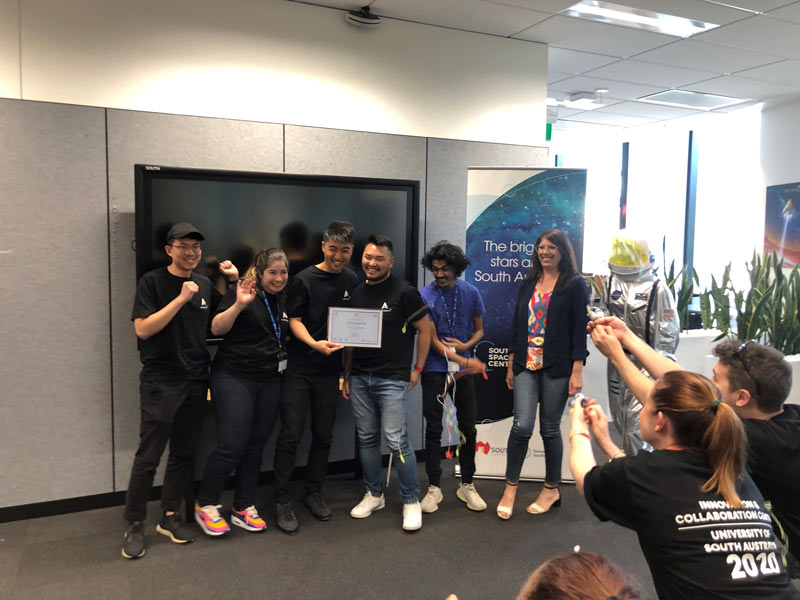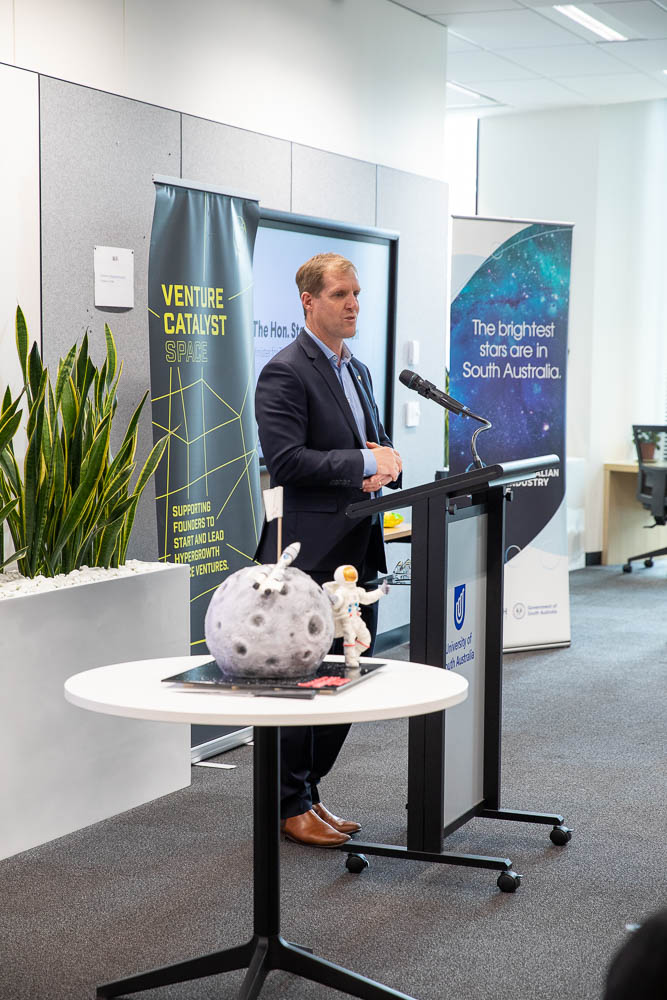
Picture: ActInSpace Australia winner, Team Doers
Bold, creative and innovative ideas were birthed at the second ActInSpace Australia competition hosted by the Innovation & Collaboration Centre (ICC) at the University of South Australia on November 13 & 14.
A total of 40 countries and 61 cities participated in the event, with 2,300 people taking part in more than 530 teams worldwide.
The event was rescheduled from April this year due to the global pandemic and although held during some tertiary exams, participants still came and conquered their chosen challenges.
The tasks for the students, developers and entrepreneurs was to choose a challenge from the ActInSpace website set by European and French space agencies and aviation experts such as AIRBUS, to utilise existing space technologies to design, improve or develop innovative applications to solve real-world problems.
The event was launched by the Honourable Stephen Patterson MP, Minister for Trade and Investment as well as Boris Toucas, Head of Culture, Education, Science and Technology for the Embassy of France with participants, sponsors and stakeholders.
After the launch, more than 25 participants formed five teams and worked through the night on their challenges while being mentored by space and business experts.
After over 24 hours of work and little sleep, the teams presented their ideas to a jury of three industry professionals, Associate Director of the Innovation & Collaboration Centre and founder of Venture Catalyst Space, Jasmine Vreugdenburg, Director of Space Industries for the South Australian Space Industry Centre, Tiffany Katchmar, and Senior Advisor for the South Australian Space Industry Centre, and Director of Communications and Outreach at the SmartSat CRC, Nicola Sansanelli.
Second placed Lotus Rose presented a plan to redesign a portable satellite receptor using lightweight materials which can access communications in remote locations.
Team Doers were crowed the winners with a plan to use data from cars to make road use fair and sustainable for the future.
With autonomous and electric vehicles entering the market, the traditional tax framework to fund maintenance of roads and transport will soon be redundant. The team suggested using telematics from cars to apply a tax framework that accounts for utilisation of the road in a pay-as-you-go format, without relying on outdated ownership of vehicles or fuel taxation.
With a tough decision ahead of them, the jury found it difficult to choose between the high-quality of the presentations.
“We were impressed with the amount of work that went into these presentations,” Vreugdenburg says.
“They were thorough and covered not only the technical aspects but the business case and revenue models. We have encouraged some of the teams to apply for the Venture Catalyst Space program so we can work with them further to ideas and business models.”
The event was supported by the South Australian Space Industry Centre, the Department of Premier and Cabinet, the Space Industry Association of Australia and the SmartSat CRC.
We wish Team Doers the best defending the global title at the international finals held virtually in France.
Media Contact: Georgia Minarelli email: georgia.minarelli@unisa.edu.au mobile: 0413 314 726


